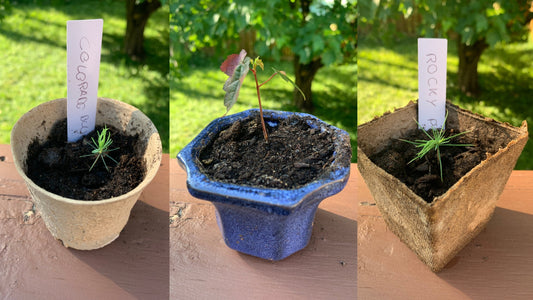1. The True Meaning of Ikigai
Ikigai, a Japanese term often translated as “reason for living,” is much more than just a quest for meaning or an ultimate goal to achieve. It is a philosophy of life deeply rooted in Japanese culture, which emphasizes daily joy and personal fulfillment through meaningful activities . This perspective is diametrically opposed to the Westernized view that associates Ikigai with an introspective quest to find a unique purpose in life.
In Japan, Ikigai is seen as a driving force that emerges from the sum of small daily joys, human relationships, and personal passions. Rather than seeking a distant end, Ikigai is found in appreciating the present moment and connecting with what surrounds us. This can be something as simple as the satisfaction of preparing a meal for one's family, cultivating a garden, or sharing moments with friends.
Historically, the concept of Ikigai took shape in rural communities in Japan, where life was centered around the collective and social interactions. This concept has evolved to encompass a broader understanding, which includes mental and physical health, and maintaining a balance between the different dimensions of life. One of the most fascinating aspects of Ikigai is that it is not static ; it evolves over time , based on each person's experiences and phases of life.
By incorporating Ikigai into your daily routine, you are not only seeking to identify what motivates you, but also learning to live in a way that is aligned with your core values . This approach requires constant attention and an openness to exploring new ways of living. Contrary to the common idea that Ikigai lies at the intersection of what you love, what you are good at, what the world needs, and what you can get paid for, authentic Ikigai is revealed over time, through the practice of living a meaningful life every day.
In this article, we will explore how to integrate Ikigai into your daily routine, taking care to dispel the myths and misconceptions commonly associated with this concept. You will discover that Ikigai, far from being a simple existential quest, is an invitation to savor the beauty of everyday life.
2. Debunking Misconceptions About Ikigai
In recent years, Ikigai has been popularized worldwide, often in a simplified and sometimes completely distorted manner. One of the biggest misunderstandings surrounding the concept is the mistaken association with a Venn diagram consisting of four questions: what you like, what you are good at, what the world needs, and what you can get paid for. This diagram, while appealing, does not reflect the essence of true Ikigai as it is understood in Japan.

Ikigai has nothing to do with the van diagram about the purpose of life (purpose)
The origin of this confusion comes from an attempt to Westernize a deeply Japanese concept by making it compatible with the ideals of productivity and career. In reality, true Ikigai has nothing to do with the pursuit of profit or a fulfilling career. Instead, it focuses on the everyday, on the little things that bring happiness and a sense of satisfaction day after day. The idea that Ikigai is intrinsically linked to profitability or paid work is a concept completely foreign to Japanese culture.
Another common myth is that Ikigai is a concept that originated in Okinawa, often associated with the longevity of the region’s inhabitants. While Okinawans may have a strong sense of Ikigai, the concept is not unique to Okinawa and is, in fact, present throughout Japanese society . Ikigai is not limited to a particular demographic or region; it is a philosophy of life that cuts across all strata of Japanese culture.

Okinawa, the island of centenarians
It is crucial to understand that Ikigai is not a goal or a destination to be reached. Unlike the Western conception, where we often seek an ultimate meaning to life, Ikigai is an invitation to find pleasure and meaning in everyday activities . It is an ongoing practice, which evolves over time and is nourished by life experiences. Instead of focusing on big accomplishments, Ikigai values small joys and daily satisfactions that, when put together, build a fulfilling life. Do you really think that if you focus your energy on a specific goal without enjoying the journey, you will truly be happy?
By deconstructing these misconceptions, it becomes clear that Ikigai is much more than just a quest for success or wealth. It is a way of life that encourages mindfulness, respect for human relationships, and the search for inner peace . By integrating this authentic understanding of Ikigai into your daily routine, you will be able to distance yourself from external pressures and refocus on what truly matters: living each moment to the fullest.
3. The Benefits of Living According to Ikigai
Living according to Ikigai is embracing an approach to life that emphasizes daily satisfaction, personal well-being, and connection with others. This philosophy, deeply rooted in Japanese culture, offers a multitude of benefits that go far beyond the simple pursuit of happiness. By aligning yourself with your Ikigai, you can transform your daily life into an enriching and fulfilling experience .
A Deep Feeling of Well-Being
One of the main benefits of living according to Ikigai is an improvement in your overall well-being. By focusing on activities that bring pleasure and meaning, you are more likely to feel a deep sense of satisfaction and accomplishment. It is not a quest for temporary happiness, but rather a state of lasting contentment that comes from aligning your daily actions with your personal values. Ikigai helps you to ground yourself in the present, appreciate the small joys of life, and cultivate a positive attitude in the face of challenges.
Increased Longevity
Studies have shown that people who live in alignment with their Ikigai tend to live longer and healthier lives. In Japan, the Okinawa region is often cited for its exceptional population of centenarians, and many attribute this longevity to the integration of Ikigai into daily life. By staying active, maintaining strong social relationships, and cultivating passions, you can not only improve your life expectancy, but also the quality of that life. Ikigai promotes balanced mental and physical health, reducing the risk of chronic diseases related to stress and isolation.
Richer Human Relationships
Another major benefit of Ikigai is the enrichment of human relationships. By living your passions and sharing meaningful moments with others, you strengthen your social connections. These relationships are not only sources of support, but also spaces for sharing and mutual growth. Ikigai encourages authenticity and engagement in interactions, which can lead to deeper friendships and a stronger community of support. By cultivating relationships based on common interests and shared values, you create a social network that nourishes your emotional well-being.

Three women happy to garden together
In short, incorporating Ikigai into your daily routine not only improves your own life; it also enriches your interactions with others, contributes to your long-term health, and helps you find a harmonious balance between your personal aspirations and the reality of your daily life. Ikigai is not just a theory, but a life practice that can transform every day into a source of joy and meaning.
4. How to Start Integrating Ikigai into Your Daily Life
Integrating Ikigai into your daily life doesn’t require a radical change, but rather a series of small actions that, together, can transform your routine. It’s about adopting habits that align your daily activities with your values, passions, and well-being. Here are some practical steps to start living according to Ikigai.
Living in the Present Moment
One of the first steps to integrating Ikigai into your daily life is to practice mindfulness. This means being fully present in each moment, without being distracted by worries about the past or anxieties about the future. You can start with simple exercises like meditation or simply by paying attention to your bodily sensations and your surroundings as you go about your daily tasks. Living in the moment allows you to savor each moment and find pleasure in the little things, which is at the heart of Ikigai.
Meditation can be a difficult and boring activity for people who are not used to it. It is best to start with a meditative activity such as gardening, painting, knitting, puzzles, hiking, all these activities can help you get into the "flow" this concept where we do not see the minutes pass, where thoughts pass without invading us, and where we feel soothed at the end.
Self-Care – Mental and Physical Health
Self-care is essential to living in harmony with your Ikigai. This includes both mental and physical health . Make time each day for activities that nourish your body and mind. This can include eating a balanced diet, exercising, and managing stress through practices like yoga or relaxation. By taking care of your well-being, you create a solid foundation that allows you to pursue your passions and fully engage in your daily activities.
Every morning and evening, I spend 15 minutes watering my bonsai seedlings in our Bonsai Box , making sure they have enough water, that they are getting the right light, and observing the differences. This allows me to stop. We often forget to do this!
Developing a Positive Social Circle
Social connections play a crucial role in Ikigai. Surround yourself with people who share your interests and support you in pursuing your passions. These social connections are not limited to family and close friends; they can also include community groups, clubs, or associations where you can share your hobbies and meet people with similar aspirations. Developing a positive social circle provides you with emotional support and enriches your life with meaningful interactions .

By adopting these practices, you will begin to live more fully, in alignment with your true nature. Ikigai is not a goal to achieve, but a path to follow each day. As you explore new passions, cultivate your relationships, and take care of yourself, you will find that Ikigai becomes an integral part of your daily routine, enriching every aspect of your life.
5. Exploration and Discovery of Your Ikigai
Discovering your Ikigai is a personal journey that takes time, reflection, and experimentation. Contrary to what some might believe, Ikigai is not something you find overnight. Rather, it is an ongoing process of self-exploration, where you discover what truly brings you happiness and meaning in your daily life. Here’s how you can begin this journey of exploration and discovery.
Explore New Passions
One of the first steps to discovering your Ikigai is to explore new passions. Sometimes we get so caught up in our daily routine that we don’t have the opportunity to try new activities or explore unknown areas. Take the time to open yourself up to new experiences, whether it’s through hobbies, travel, or training. It could be something as simple as starting a new sport, taking cooking classes, or learning a musical instrument. The important thing is to stay curious and not be afraid to step outside of your comfort zone.
At Ikigai Box we offer you a Bonsai Box , a complete kit for growing Bonsai from seeds.
The Bonsai Box Deluxe, a unique gift to discover your ikigai
Identify what brings you “Flow”
The concept of “flow” is closely related to Ikigai. It is that state of deep concentration where time seems to disappear and you are totally immersed in an activity that you are passionate about. For some, this can happen while writing, painting, playing an instrument, or even solving complex problems. Identify the activities that put you in this state of flow. These are often the ones that reveal important aspects of your Ikigai. Flow guides you to what you are truly passionate about and shows you how to integrate these activities into your daily routine.
Show Patience and Perseverance
Discovering your Ikigai requires patience and persistence . It is important to understand that this process is unique to each individual and there is no fast track to getting there. Be kind to yourself and allow yourself to explore at your own pace. It can be helpful to keep a journal where you record your thoughts, experiences, and how you feel as you explore. This will help you identify patterns and gain insight into what resonates with you deep within.
By taking an open and curious approach, you will begin to discover the elements that make up your Ikigai. This process is an ongoing journey that evolves over time, reflecting changes in your passions, values, and aspirations. The most important thing is to stay true to yourself and embrace each step of this exploration with an open mind and an enthusiastic heart.
6. Conclusion: The Path to Authentic Ikigai
Embracing Ikigai is not a destination, but an ongoing journey that is nourished by each moment lived with intention and alignment. Through this article, we explored the true essence of Ikigai, moving away from commonly held misconceptions, and refocusing on what it truly means to live according to this age-old Japanese concept.
The path to authentic Ikigai begins with honest introspection and patient exploration. It’s not about answering preconceived questions or trying to fill in boxes, but rather connecting with yourself and discovering what makes your heart sing on a daily basis . This holistic approach emphasizes mindfulness, mental and physical health, and the importance of building nourishing social connections.
By incorporating Ikigai into your daily routine, you are not only aspiring to find meaning or purpose in your life, but to live each day in a more enriching and fulfilling way. This could mean taking time each morning to reflect on what brings you joy, or ending the day by appreciating the small moments that made your day special. Ikigai is also about choosing activities that put you in that state of flow, where time seems to disappear and you feel truly alive.
It is crucial to remember that Ikigai is personal and unique to each individual. What resonates for one may not have the same impact for another, and that is completely normal. Your Ikigai will evolve over time, based on your experiences, challenges, and the people you meet. The key is to stay in tune with your true essence, embrace change, and live each day with clear intention.
Ultimately, integrating Ikigai into your daily life is an act of self-love and respect for the life you have. It is an invitation to live fully, to cultivate what brings you joy and meaning, and to honor each moment as an opportunity to get a little closer to your Ikigai. The journey may be long, but each step is worth it, as it leads you to a richer, happier, and more authentic life.
To deepen your understanding of Ikigai, you can listen to The Ikigai Podcast by Nick Kemp, where experts discuss the true meaning of Ikigai and how it can be integrated into everyday life.





